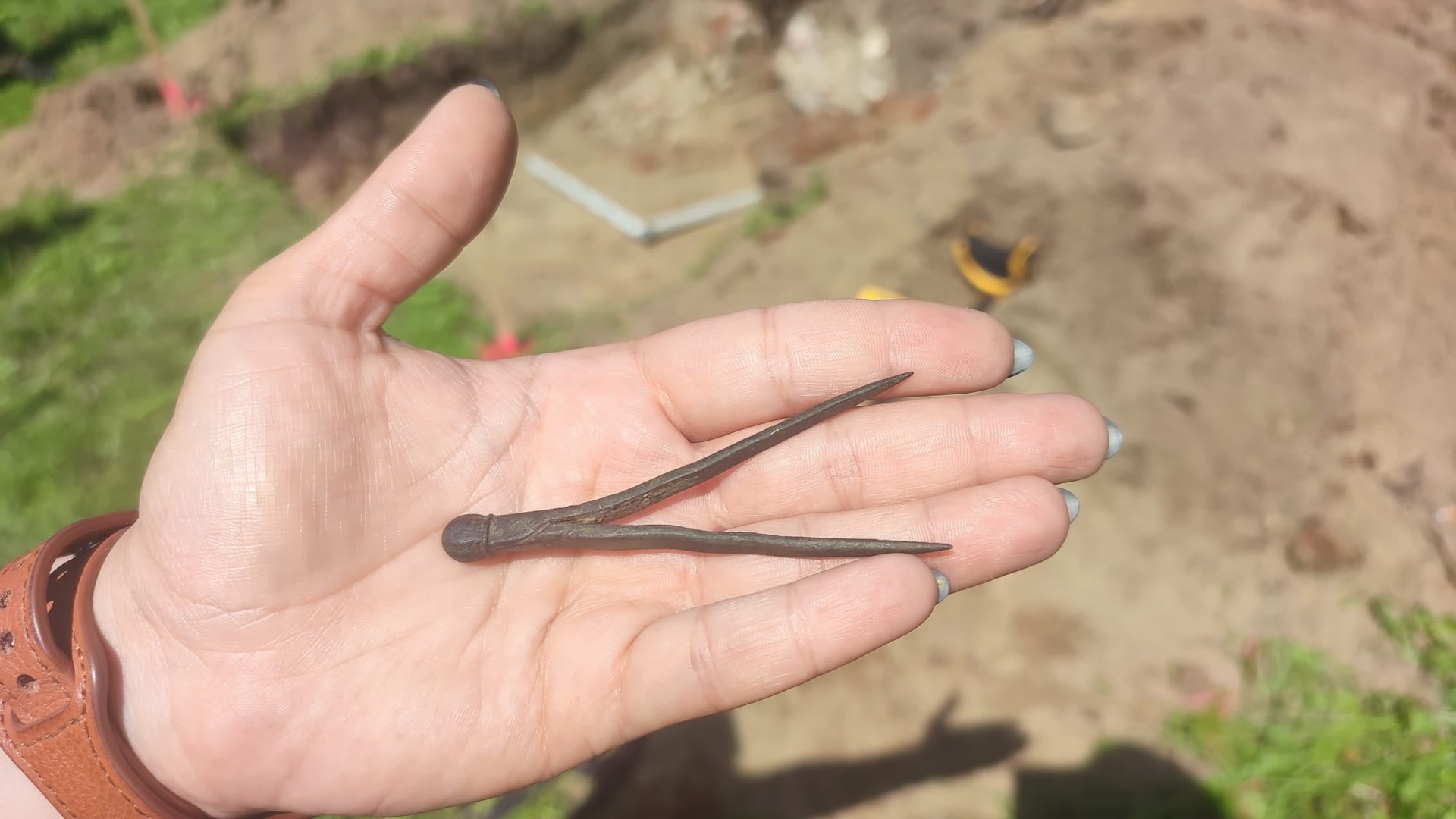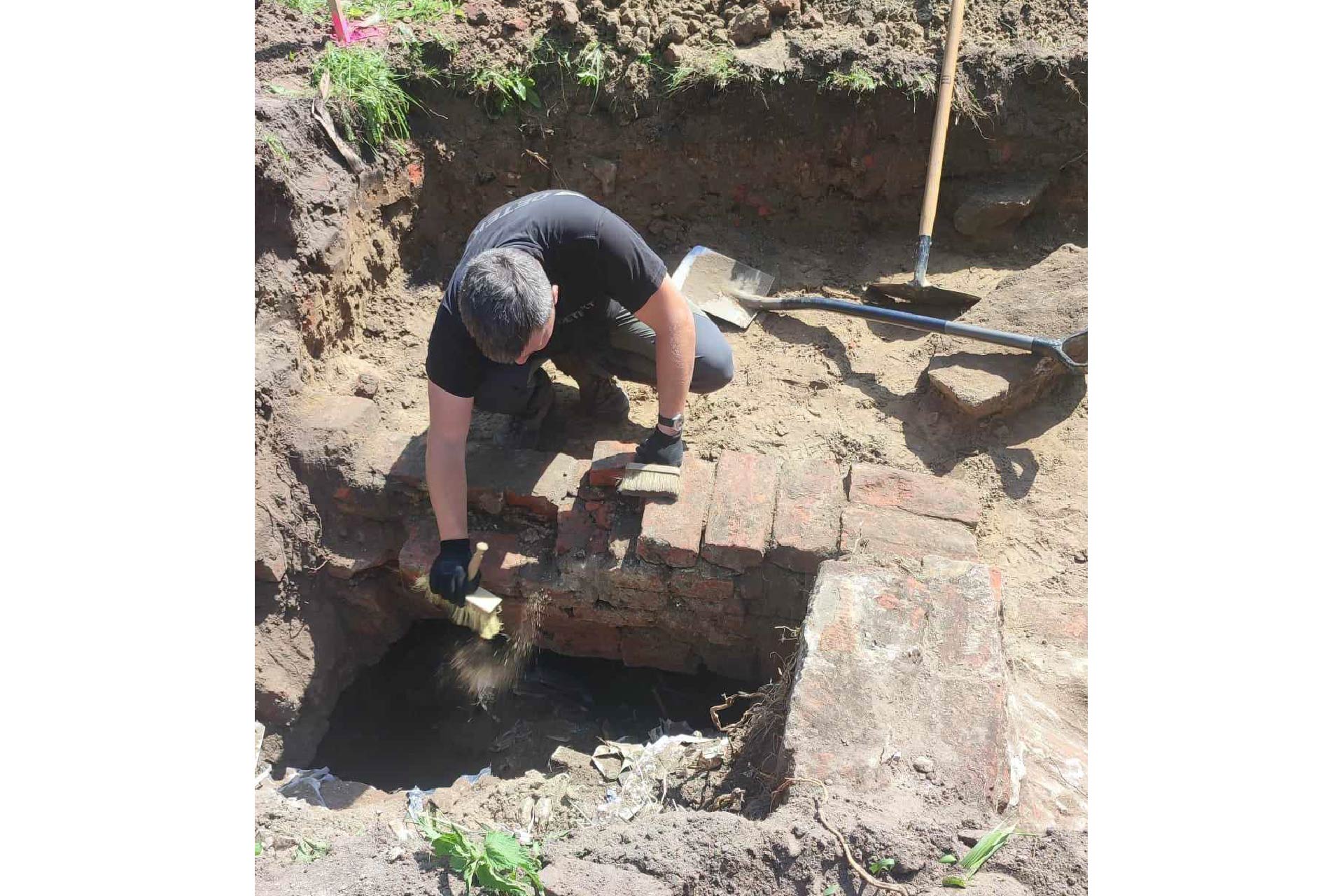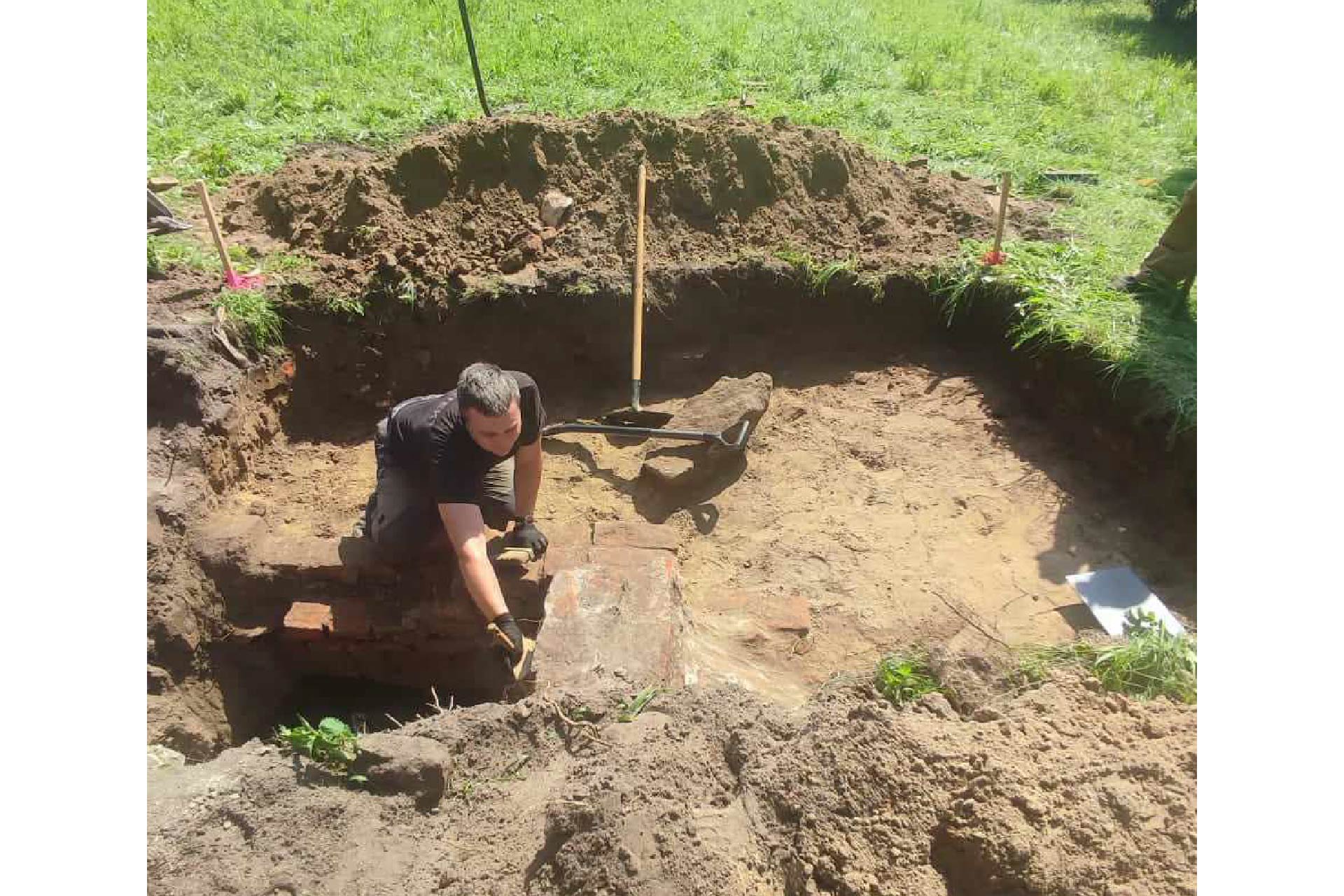
Archaeologists in Poland have discovered a 500-year-old compass that may have belonged to Nicolaus Copernicus, who is most famous for his heliocentric model of the solar system, in which the planets orbit the sun.
The 16th-century find was unearthed in a network of underground tunnels beneath the canonical gardens of the town of Frombork, where Copernicus died.
The artifact — a two-pronged metal device also known as a divider — was used for precise measurements in cartography, geometry and astronomy. The Warmian Exploration Group, which announced the find in an Aug. 4 Facebook post, noted that this was the third such specimen found in Poland.
Norbert Ogiński, president of the Warmian Exploration Group and a Frombork local, had childhood memories of tunnel entrances in the gardens before they were buried years ago, he told Live Science in translated messages over WhatsApp.
"We wanted to do something positive for our city," he said. They secured exploration permits and used ground-penetrating radar (GPR) to search for the tunnels. The next day, they began excavating the biggest anomaly identified by the GPR survey. The group had permission for only one test excavation, which meant they had a single shot at finding the secret tunnels, Ogiński told Ikat Gazeta Braniewska, a Polish news outlet. Their work paid off — the GPR survey had indeed identified the entrance to the tunnels.
An excavation of the soil in the tunnels revealed the centuries-old compass. Archaeologists from Detekt Archaeological Services, an archaeological company, confirmed that the artifact was authentic and tentatively dated it to between the 15th and 16th centuries.
"They said it was very likely that it was an object of Nicolaus Copernicus because we were conducting work in one of his gardens," Ogiński told Live Science.
Related: 'Perfect' 1st edition of Copernicus' controversial book on astronomy could fetch $2.5 million


In addition to proposing that the planets in the solar system revolve around the sun, as opposed to around Earth, Copernicus suggested that our planet completes one rotation on its axis per day. He also hypothesized that slow changes in the direction of Earth's axis brought about the equinoxes.
Copernicus lived a good portion of his life in Frombork, and was the canon, or clergyperson, of the Frombork cathedral for a period of time. "This find is of great historical importance because the compass is one of the few direct pieces of evidence of Copernicus' practical application of science," Michal Antczak, a member of the Misja Skarb Foundation, an association that is engaged in the promotion of local heritage and also took part in the dig, wrote in a translated page dedicated to raising funds for further archaeological work in the area. "The discovery of this tool gives us a unique insight into Copernicus' working methods and his influence on the development of science in Europe."
On Aug. 8, the compass was passed to the Nicolaus Copernicus Museum, which has a similar compass in its collection.
"Weekend compulsory duties of our museum workers are usually boring and not very exciting. But not today!" the museum wrote in a Facebook post in Polish. "Congratulations to the lucky finder!"







